Alan Barnes fund: Why do we donate money to strangers?
- Published
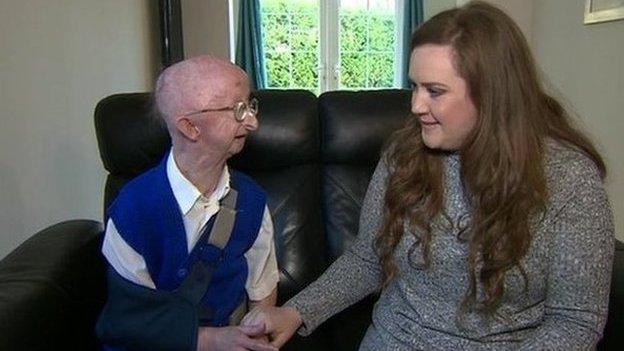
Donations to the Alan Barnes Fund, set up by Katie Cutler, have reached more than £300,000
Fundraising for a disabled man who was mugged outside his home has topped the £300,000 mark. It's the latest high-profile example of people being moved by the plight of strangers. But what is it that inspires this level of generosity?
It was a despicable act: the moment a thug pushed Alan Barnes to the pavement and rifled through his pockets for cash.
But in the aftermath of the attack came a torrent of kindness, as more than 24,000 people donated money to a web page set up by beautician Katie Cutler to help the Gateshead pensioner.
After just four days, donations to her Go Fund Me page topped £300,000, far exceeding her target of £500.
Examples of fundraising on this scale are becoming more commonplace, thanks to social media appeals and fundraising websites that make it easy to click and donate.
Cancer patient Stephen Sutton and marathon runner Claire Squires both made headlines after raising huge sums of money using an online platform.
Donations continue to roll in to the Alan Barnes fund, but what was it about this appeal that resonated so quickly with the public?
"It's a real person we can identify with," said Dr Joan Harvey, psychologist at Newcastle University.
"With bigger appeals you can feel that you can't identify with them in the same way.
"[This] caught the public imagination. He's a chap with disabilities, he's been badly treated by yobs and then comes along this angel of mercy and she has a target; she wants him to have a new house where he will feel safe.
"So we've got a local man, an angel and a target. What's not to be kind about? So we all dig in our pockets."
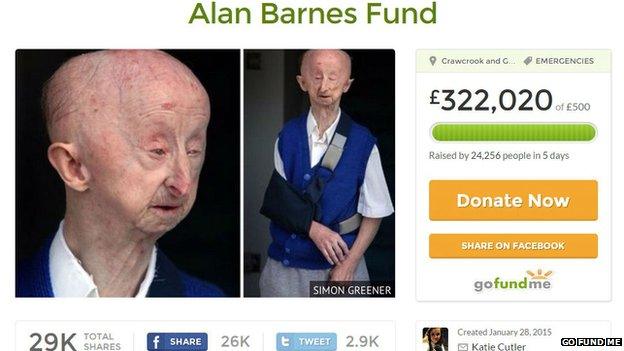
Adversity, tragedy, injustice and wrongdoing have repeatedly inspired ordinary people to donate their hard-earned cash to good causes - and even to complete strangers.
The amount isn't what matters, according to Dr Harvey. She said people simply wanted to feel they had contributed.
One donor to the Alan Barnes fund wrote: "Just donated only ten pounds but I hope it helps. What happened to Alan was disgusting and he deserves to feel safe."
Another wrote: "I was proud to donate and do something useful."
Small-scale gestures of "a fiver here and a tenner there" quickly mounted up into a small fortune, helping to a secure a future for Mr Barnes that Miss Cutler could never have anticipated.
So what else has made this campaign a success?
"There's a really simple explanation, which is that someone asked," said Dr Beth Breeze, from the University of Kent's Centre for Philanthropy.
"People get mugged every weekend, but this woman has taken it upon herself to ask for donations.
"We're a generous nation but it takes someone else to organise it. People don't wake up and think 'I've got spare money, who should I give it to?', but if an email comes with a link [to a fundraising page], people will respond."

Top Just Giving pages of 2014
Stephen Sutton's fundraising page, external for Teenage Cancer Trust - £4,519,242.39
The Ice Bucket Challenge fundraising appeal, external for Motor Neurone Disease Association - £4,013,529.82
Manchester Evening News fundraising appeal, external for Manchester Dogs' Home following a devastating fire - £1,473,911.40
A fundraising page, external for six-year-old cancer patient Kelli Smith, set up by her father who also has terminal brain cancer - £510,206.27

The popularity of sites such as Go Fund Me and Just Giving is partially down to the ease with which anyone can start up a fundraising campaign, with new appeals appearing on a daily basis.
In the last 48 hours alone, The Guardian reports that, external thousands of dollars have been raised to help a Detroit man who walks 21 miles (34km) to and from work.
Miss Cutler's campaign, meanwhile, was the "sixth-largest of all time" on Go Fund Me, the site said.
Anne-Marie Huby, co-founder of Just Giving, said: "As well as donating to charities, people want to make a difference in a very direct way when they are moved by a particular story in the news or social media. That's why the plight of Alan Barnes and [others] received so much support.
"We saw more than 1,000 projects of a similar kind on Just Giving in 2014 alone, which shows how the power of the crowd can be harnessed to have a really positive impact."
Just Giving has seen a number of high-profile appeals in recent years.
In 2012 Claire Squires died less than a mile from the finish of the London Marathon, prompting people to donate £600,000 to her page in the days after her death, and eventually £1m in total.
Donations to Stephen Sutton's campaign for the Teenage Cancer Trust reached £4.5m after his Facebook page, external documenting his battle with bowel cancer went viral.
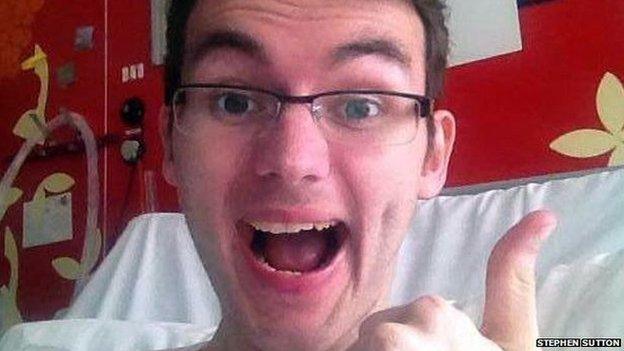
Stephen Sutton raised millions for the Teenage Cancer Trust
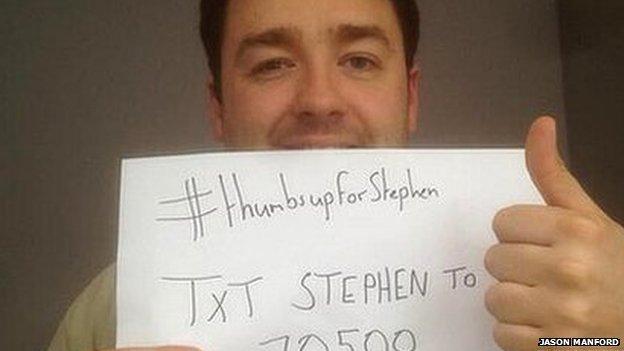
Comedian Jason Manford was among supporters of Stephen Sutton's online fundraising campaign
The Staffordshire teenager's profile was further boosted when comedian Jason Manford posted a picture of himself doing Stephen's signature 'thumbs up' gesture on Twitter with the hashtag #ThumbsUpForStephen.
"The beauty of social media is that you can send money but you can also send a message," said Dr Breeze.
"People like to be personal and social media lets you give something more than just money, you can say 'sorry' to Claire Squire's family or 'good luck' to Stephen Sutton."
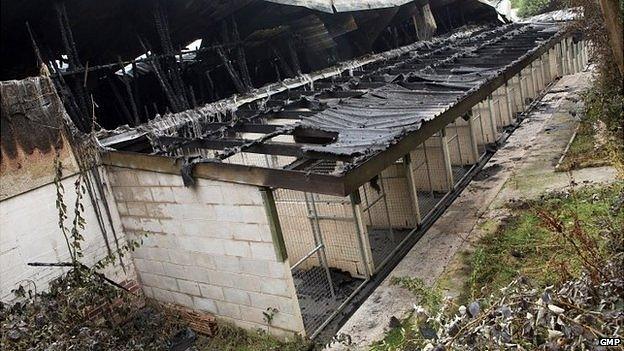
Donations to the Manchester Dogs' Home, which was gutted by a blaze. reached £1m in 24 hours
According to research by UK Giving, more than half of us give to charity every month, with causes relating to cancer, children and animal welfare attracting the most donations.
It's a fact reflected in the recent success of the campaign raising £1m in 24 hours following the blaze which killed 60 animals at the Manchester Dogs' Home and the #NoMakeUpSelfie craze, which raised £2m for Cancer Research UK in a matter of days.
"That's the sort of thing you can do these days through social media," said Dr Breeze. "But these things come and go.
"NoMakeUpSelfie lasted only eight days and [the Alan Barnes fund] will be gone by the weekend. It's the nature of the world we live in."
- Published2 February 2015

- Published2 February 2015
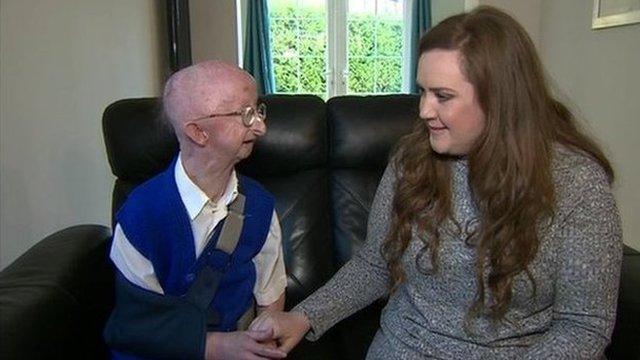
- Published12 September 2014
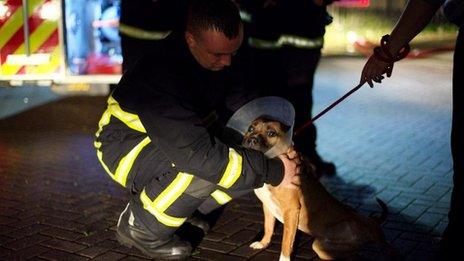
- Published14 May 2014
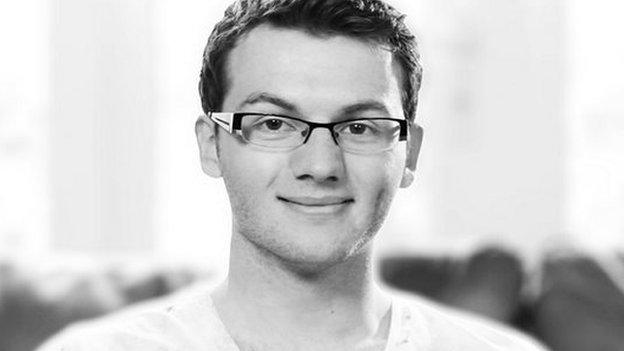
- Published1 May 2014
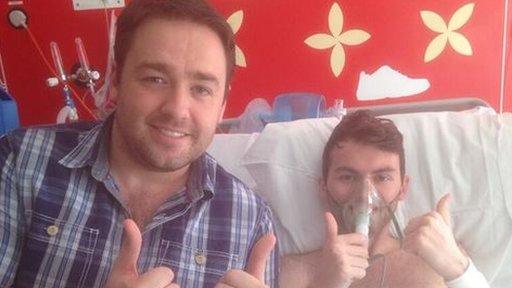
- Published28 April 2014
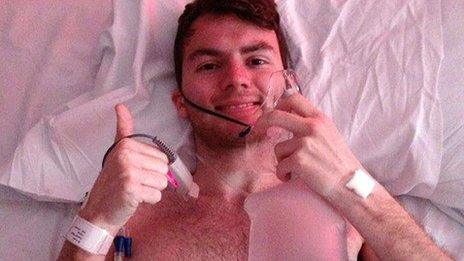
- Published22 March 2014
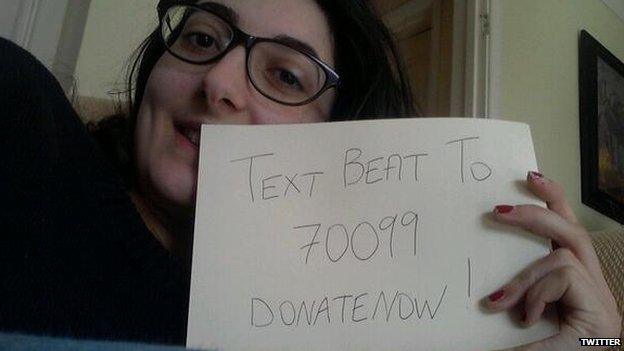
- Published27 April 2012
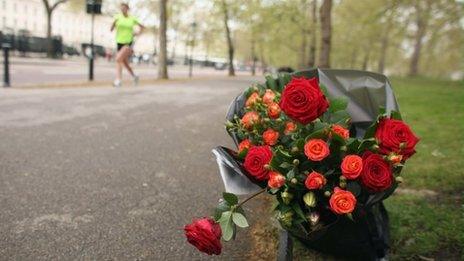
- Published25 April 2012
